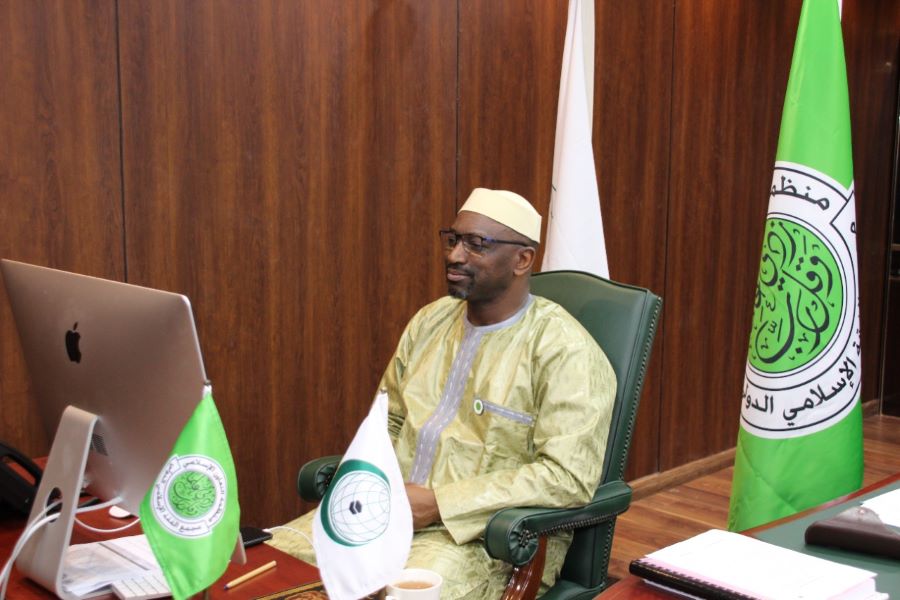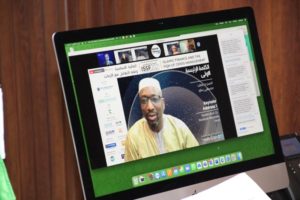
His Excellency Prof. Koutoub Moustapha Sano, Secretary General of the International Islamic Fiqh Academy (IIFA), participated on Wednesday, Safar 29, 1443H corresponding to October 06, 2021G, through videoconferencing in the Sixteenth International Sharia Scholars Forum, which is being held this year under the title “Islamic Finance and the Fiqh of dealing with Crises”, organized by the International Sharia Research Academy for Islamic Finance “ISRA”, and at which he delivered the keynote speech of the opening ceremony on “Foundations of applying the fiqh of dealing with crises in contemporary financial transactions”.
His Excellency began his speech by thanking and praising the organizer of the Forum, “ISRA”, and stating that this event has become a global landmark for scientific research and studies in the field of Islamic finance, and a guide for workers and those interested in it. His Excellency added that ISRA’s blessed efforts have contributed over the years to consolidating the role of Islamic finance in global economic transactions, and to highlighting the position it deserves as one of the necessary economic solutions to address the financial crises that our world is witnessing today.
Then His Excellency explained that “one of the duties imposed on scholars is to light the path for those seeking knowledge, and one of the holiest duties is to teach the common people about the rulings of their religion, and to inform them of their duties and prohibitions. These are the legal rulings transmitted in the folds of the general texts in the Holy Book and the purified Sunnah through the foundation of the total principles of the Sharia, the major jurisprudential rules, and the supreme Sunna objectives in order to facilitate for people the task of complying with the divine commands, to avoid the divine prohibitions, and to confirm the validity of this Sharia for every time and place, and for every human being at all times”.
His Excellency also added that “if crises, with their emergencies, pandemics, and disasters, are among the eternal divine laws that will not stop befalling nations, and there will never be a time without them through the ages, then dealing with them wisely and firmly requires a full command of the faculties of Sharia, the sharia purposes, and a solid understanding of the consequences, because the nature of crises, whether they are emergencies, pandemics, or disasters, cannot be covered by the derivatives, and the fatwas of the past are not able to deal with them, given their components, effects, and consequences”.
Then His Excellency indicated that there are important foundations that can be considered as building blocks for developing a new fiqh that he called the fiqh of crises. The foundations of this fiqh are summarized in the following premises:
- First: sticking to the generalities mentioned in the texts related to pandemics and emergencies, such as the hadith of the Messenger PBUH: “He who sells a fruit and it is afflicted by a pandemic does not take anything from it, why would anyone of you take his brother’s money?”
- Second: Recourse to the shariah purposes of the chapter on transactions, especially the goal of justice.
- Third: Compiling all the rules of jurisprudence, especially the rule of “No harm to either party” and the rules that derive from it.
- Fourth: Considering the consequences of actions.
His Excellency concluded his speech by thanking the organizers for giving him this opportunity to speak to the conferees through this distinguished platform on a topic of great importance and complexity, hoping that Muslims and all humanity would benefit from this renewed thought and original ijtihad, and that it would have a positive impact on the development and advancement of the Islamic finance sector, and finally wishing the conference success.
Read Also
Lastest









